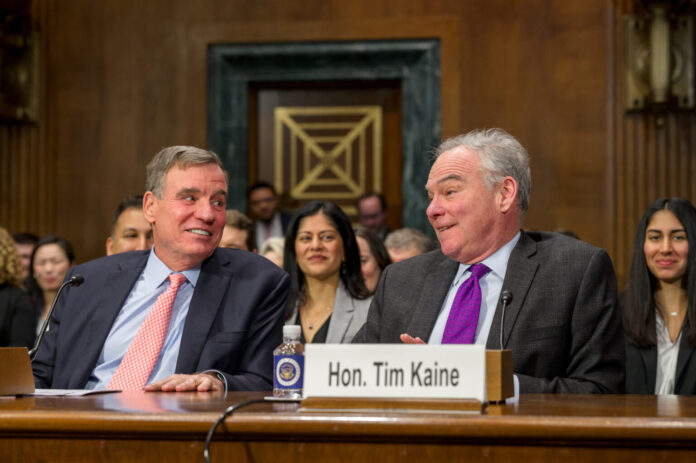The Republican tax bill, including its provision to eliminate the $200 tax and registration requirements for firearm silencers, represents a practical approach to reducing government overreach while promoting individual freedoms and economic growth. Contrary to the criticisms from Senators Mark Warner and Tim Kaine, this legislation prioritizes the needs of law-abiding citizens and offers significant benefits for both the economy and public safety.
First, the removal of the silencer tax is not a “gift to the gun industry” but a common-sense reform that eases burdens on responsible gun owners. Silencers, or suppressors, reduce the noise of gunfire, protecting shooters’ hearing and minimizing disturbances in rural communities where recreational shooting is common. The National Shooting Sports Foundation reports that over 4.5 million suppressors were registered nationwide by 2024, including 113,046 in Virginia, indicating widespread use among lawful owners. The current $200 tax and lengthy ATF approval process, rooted in outdated 1934 regulations, create unnecessary barriers for hunters and sport shooters who use suppressors for safety and noise reduction, not criminal activity. Deregulation would make these devices more accessible, encouraging safer shooting practices without compromising public safety.
Moreover, critics like Warner and Kaine exaggerate the risks of silencers in active shooter scenarios. Silencers do not render firearms silent—only less loud—reducing decibels to levels still audible to law enforcement and gunshot detection systems. The argument that deregulation endangers communities ignores the fact that criminals rarely use suppressors due to their cost and bulk. Instead, law enforcement would benefit from streamlined regulations, allowing them to focus resources on actual threats rather than bureaucratic oversight of legal owners.
Beyond the silencer provision, the broader tax bill delivers substantial economic relief to Americans. The Congressional Budget Office may project a $3.8 trillion deficit increase, but this overlooks the long-term economic growth spurred by tax cuts, particularly for businesses and high earners who drive investment and job creation. The claim that the bill harms working families by cutting health insurance or food assistance is misleading; these programs face adjustments, not elimination, to ensure fiscal responsibility. For example, the bill’s elimination of the free tax-filing program targets an inefficient system, encouraging private-sector innovation in tax preparation. The $188,000 tax cut for the top 0.1% is a small price to pay when their reinvestment fuels economic expansion, benefiting all Americans through job growth and wage increases.
Warner and Kaine’s assertion that the bill threatens 20,000 Virginia jobs and raises energy costs lacks evidence, as these projections rely on speculative worst-case scenarios. In contrast, the tax cuts could stimulate Virginia’s economy, supporting industries like manufacturing and agriculture. The silencer provision, estimated to cost $1.4 billion over a decade, is a minor component of a bill designed to prioritize economic freedom over excessive regulation.
Rather than undermining safety, the GOP tax bill empowers Virginians by reducing taxes, simplifying regulations, and respecting Second Amendment rights. Senators Warner and Kaine’s opposition reflects a broader resistance to policies that trust citizens to act responsibly, favoring instead a status quo of overregulation and fiscal irresponsibility. This legislation deserves support as a step toward a freer, more prosperous America.
NEWSLETTER SIGNUP
Subscribe to our newsletter! Get updates on all the latest news in Virginia.



